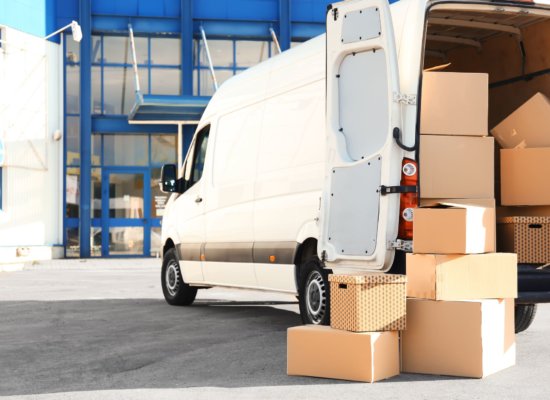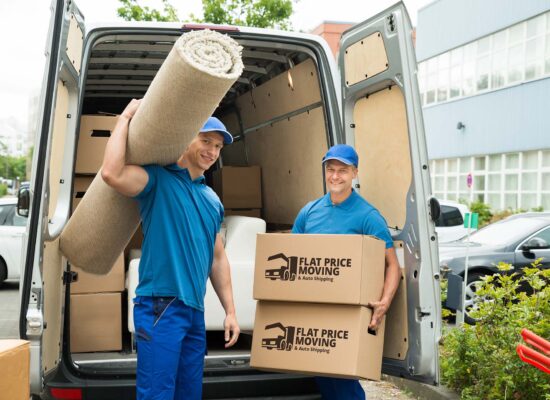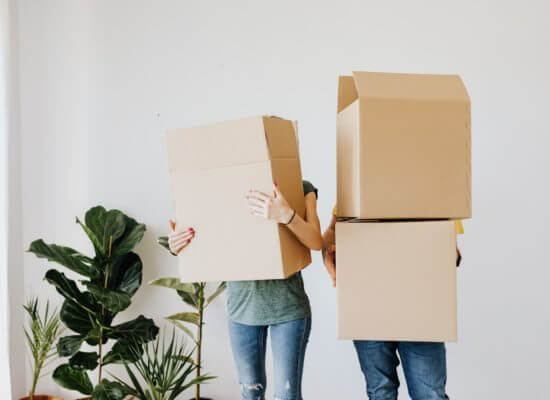What to Keep When Moving Across the Country
Many people don’t realize it, but an average American household contains around 300,000 items. Now, imagine if you have to move all that stuff. It’s no wonder that knowing what to keep when moving and what to toss is an essential part of this process. Since the household size has tripled over the past 50 years, now you’ll need 50-70 boxes to pack the entire house.

No matter if you’re relocating for the first time or you’ve done it before, organizing for the move is a process that requires thorough planning. And bringing unnecessary clutter along for the ride will do you no good. That’s why you should check out the article below and learn what things you should leave behind when moving across the country.
Make a Plan When Wondering What to Keep When Moving
Do you feel like you’ll have too much stuff in your home, and it’s all just overwhelming and crowding? There’s no room for panic – the relocation is a stressful enough process – one of the three most stressful events. Luckily, there are some relocation tips and tricks on wisely deciding what is worth keeping.
Just thinking about how much stuff you have to pack – makes you anxious, right? There’s at least one item in every home that it’s never used and won’t be any time soon. So, wasting your free moments on wrapping it up and spending your money on the supplies doesn’t make much sense. So, when you’re relocating to a new home, no matter if relocating from house to apartment or vice versa, learning some tips for downsizing is a must. The same goes for the last-minute move – with good guidance, you can downsize like a pro in just one day. The key is planning and organizing the whole process and, if possible, finding a helper.
Create a List of Things You Need to Move
The main thing in this whole process is to be realistic. It’s more complicated than you think because the material things grow on us, especially if you consider that an average American spends around 11 years in one home. That’s why, before deciding which items you’ll bring and which ones you’ll toss, go through the entire house and create a list of stuff you really need. This can be a part of a relocation to-do list that contains all relocation tasks.
It’s essential to be rational because the amount of stuff you want to pack will also affect the cost of the move. The more stuff you have, the more boxes you’ll need. So, no matter if you’re hiring long-distance movers or DIY, the number of boxes should be reduced to a minimum.

Inspect All Rooms but Start With Most Time-Consuming One
A list has another benefit. If you can’t be realistic and put on paper only what’s really necessary, once you see the extended version of it, you’ll realize some stuff isn’t worth the trouble of wrapping up. Also, you shouldn’t waste time unpacking them after the move and once you settle in the new home. So, inspect all rooms and roughly decide what you absolutely have to move. The stuff that you use once a year or less you should leave behind.
What Should I Purge Before Moving – Declutter Your House and Don’t Forget to Check Storage Spaces and Garage
Not every room has the same amount of space and capacity to store stuff in it. The best approach would be to start with the places that will take more of your time – closets and garages. When you begin packing a garage, you’ll see that relocating one maybe wasn’t the best idea because all that accumulated clutter can be overwhelming.
The stuff we don’t use on a daily basis is often stored also in the closets, home offices. That’s why checking first the spaces you know have the most clutter is an essential step in the relocation process. Once you’re done with that storage, you’ll get the wind at your back, and you’ll feel more confident about finishing up the rest of your apartment.
Keep in mind that relocating a garage is a task that will probably take you more time than calculated; that’s why in the video below, you’ll find some fantastic tips on how to do it efficiently.
Tips on How to Decide What to Get Rid of and What to Keep
If you think that when relocating alone, you’re allowed to move more stuff, unlike those that are relocating for love, and they are moving in with their significant other, you’re wrong. The main reason why relocation is so stressful is that people can’t pack everything on time or can’t afford it.
That’s why the best way to have a stress-free relocation is to prepare everything as soon as you consider all the benefits of relocation and figure out where you’ll live. The preparation consist of answering some simple questions:
- Will you use the item once you move?
- Is it functional?
- What’s the condition of the item?
- Can you replace it?
- Will it fit in the new apartment?
Once you honestly answer these questions, you’ll be able to give up on some stuff that maybe you couldn’t before. For example, you have in your garage some old appliances that do not even work correctly; there’s no point bringing them with you.

Make a Pile of Stuff You Want to Keep, Donate and Sell/Toss
Going through your possessions can be an overwhelming process if you do not have any kind of organization. That’s why if you want to avoid stressing during the whole process, you can create three different piles of stuff: keep, donate and sell or toss.
In the keep pile should be stuff you use on a regular basis. Begin by organizing important documents and protecting them (you don’t want to accidentally throw away your mortgage info or something else). Then organize other objects and possessions, like those in your dresser – clothes you’re not sure are worth relocating, pick only the necessary pieces for each season. Those things you want to keep just in case, do not do it. Precisely this kind of stuff is making clutter in your apartment.
The donate pile should contain stuff in good shape that you just won’t use anymore. Ensure nothing is stained or damaged; otherwise, you can toss them. Donating unwanted items will help you pack faster, but it also means you’ll help less fortunate people. Check your local charity organizations or go online and schedule a pickup at Goodwill. Also, if you are relocating with teenagers, go over all those kids’ toys and books they outgrew. Then make a pile that can be donated.
Sell pile is for stuff you know that could bring you some money. Organize a garage sale or sell them online. Old (but functional) appliances, electronics, and bulky stuff can be useful to other people, and you’ll be spared a hard time protecting and transporting them to the future location. For those that are broken and can’t be repaired, there’s nothing left to do but to throw them away.

What to Get Rid of When Moving Across Country – How Will You Benefit From It
When looking for the cheapest way to move out, packing the entire household isn’t the best idea. The fewer stuff and boxes you have, the smaller amount of money you have to set aside for professional long-distance moving services. Also, there are some stuff cross country movers won’t move, so you should prepare for the crew and avoid the following objects:
- Perishable food – check the expiration date and all the food and other stuff – throw away.
- Hazardous materials – everything flammable, like paint, gasoline, oil, fireworks, or explosive professional movers won’t consider loading into the truck.
- Plants and pets – it’s best to keep pets and plants with you during transportation.
Deciding what to get rid of, from old paperwork which has expired to each item that can’t be used or you just do not want anymore, shouldn’t be on your packing list.

What Items Are Worth Moving – Leave Precious Stuff for Last
Some possessions you surely won’t utilize every day, but they have a sentimental value, right? Bring these objects with you because they will help you get through the first and most challenging period after the move. So, special presents, family heirlooms, objects that kids or pets love and make them happy should be prepared and packed for the move.
Between avoiding some of the most common relocation mistakes and trying to remember the most forgotten stuff to pack, it’s completely normal you wish to bring everything with you (just in case) or leave it all behind. However, the valuable objects – artworks and similar expensive items are worth relocating.
Explore Some Tips on Packing Efficiently Items You’ll Keep
Once you decide what will be packed, you get to the part of how to do it efficiently and protect belongings in the best possible way. Here are some steps you should take and pack your stuff as professionals would do:
- Get as many supplies as you can,
- Prepare the stuff for wrapping up – get the cleaned and dry,
- Protect all the sharp edges with an extra layer of bubble wrap,
- Pack first heavier stuff and finish with placing the lighter ones on top.

What to Do With Old Bulky Items – Is Furniture Something You Should Move?
The biggest dilemma comes when you have to decide what to do with older stuff from your household. That stuff is mostly old pieces of furniture and appliances. If an item isn’t that valuable, but it’s sitting in the basement or a garage for years, you should consider getting rid of it.
On the other hand, if you have vintage furniture that will fit nicely in your future place, you don’t have to decide what to keep or what to throw away, just bring it with you. The great news is that if you hire a relocation crew, they will take care of disassembling and assembling the furniture so that you won’t have to contact all the help you can get.
However, if you still can’t decide what to keep and what to sell when moving, then you can contact your family and friends and ask for a helping hand. It’s not the easiest task to declutter your entire place and decide what to get rid of and whatnot. That’s why more than one head can get a better solution for those objects you’re not sure whether to sell or keep.

Contact Professionals and Let Them Take Care of Your Move
After one of the most tedious tasks is done and you know that only the most necessary stuff will be moved to your future place, contact the professional car shipping company to help you with all other services needed. Professionals will lend you a helping hand with the efficient packing service and a storage facility for your belongings. With their help, you’ll have more free moments to think about all the opportunities the big relocation change will bring you.





